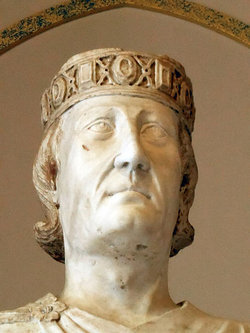Bio by: Lutetia
Family Members
-
![]()
Philippe de France
1209–1218
-
Princess Valois Of France
1211–1270
-
![]()
Louis IX of France
1214–1270
-
![]()
Louis IX of France
1214–1270
-
![]()
Robert I d'Artois
1216–1250
-
![]()
Alphonse III de Poitiers
1220–1271
-
![]()
Philippe Dagobert de France
1222–1232
-
![]()
Saint Isabelle of France
1225–1270
-
![]()
Charles of Anjou
1226–1285
-
![]()
Charles I of Anjou
1226–1285
Advertisement
See more of Anjou memorials in:
Explore more
Sponsored by Ancestry
Advertisement
















